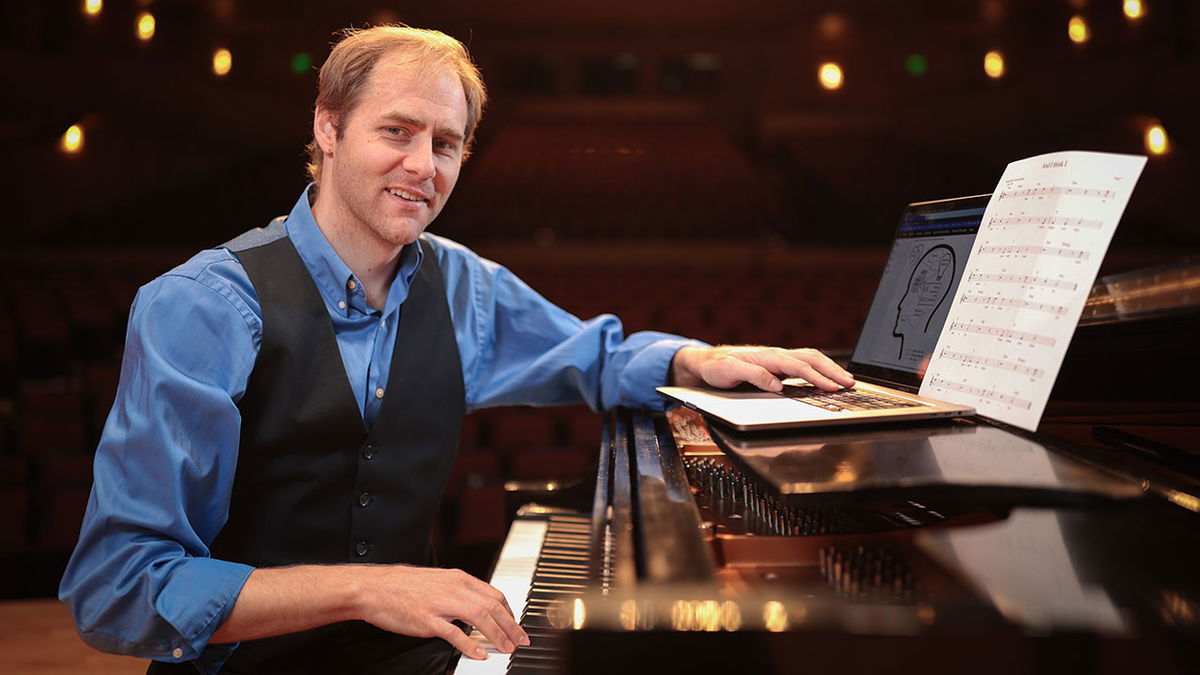ISU professor creates artificial intelligence that composes music

POCATELLO, Idaho (KIFI) – When it comes to music, composition is one problem that has always vexed computers. Sure, they can string a few notes or lyrics together, but creating motifs—repeated musical patterns that create form and meaning—is a real challenge. Now, after more than seven years of riffing on the problem, an Idaho State University Computer Scientist has come up with the solution.
Enter Pop. Pop - pronounced ‘pop star’ - is an AI system developed by Bodily. It is designed to operate without needing a human and, most importantly, solves the long-range dependency problem.
“Pop* uses a special type of machine learning model that looks way ahead in the sequence at what will eventually be generated to adjust the probabilities of what it generates in the short run,” Bodily said. “In the end, the piece is coherent all the way through.”
Bodily used well-known songs like “Twinkle, Twinkle Little Star,” and “Somewhere Over the Rainbow,” as well as pop classics like “Hey Jude” by The Beatles and John Lennon’s “Imagine” to train Pop* on chords, pitches, rhythms, and lyrics. After this crash course training phase, the AI can now compose its own short pop songs. For lyrical inspiration, Pop* looks to Twitter for tweets on its favorite themes: being in love, feeling depressed, and new beginnings.
“One of the first compositions Pop* generated was this really somber, pensive song with the lyrics that went, ‘And I think I am just a lie,’ Bodily explained. “I was floored by how much it moved me. We humans all deal with feelings of inadequacy at times, but beyond that, here is an AI system that seems to be questioning its own validity and doing so in an artistic, creative way.”
Recently, a paper by Bodily and co-researcher Dr. Dan Ventura, Professor of Computer Science at Brigham Young University, was published in the Special Collection: AI and Musical Creativity issue of Transactions of the International Society for Music Information Retrieval. The publication marks the culmination of years of work by Bodily, starting when he was working on his doctorate at BYU under the instruction of Ventura.
“When I started doing research in AI, I was already heavily involved in a completely different research direction, and it was a big leap of faith to switch,” Bodily said. “This publication represents the reward for taking that leap seven years ago.”
In June, Pop* will be entering a battle of the bands of sorts, the AI Song Contest 2022, and will be competing using one of its earliest compositions, “And I Think I.” Looking to the future, Bodily aims to research the use of systems like Pop* for therapeutic purposes. He’ll be looking into how pairing people with an AI that knows how to compose music can help enhance their ability to be creative and process whatever challenges they may be going through.
“My vision is to integrate Pop* into a mobile app in which the user is prompted for thoughts or feelings, and then Pop* and the user work together to create a meaningful musical expression of or reaction to those ideas. The system could be designed to help the user share these creations or find other like-minded creators with whom they could connect. My hypothesis is that a tool like that could be quite powerful in helping people address various mental health challenges.”
If you’d like to hear some of the songs composed by Pop*, visit the website for Bodily’s Computational Creativity and Intelligence Lab.
